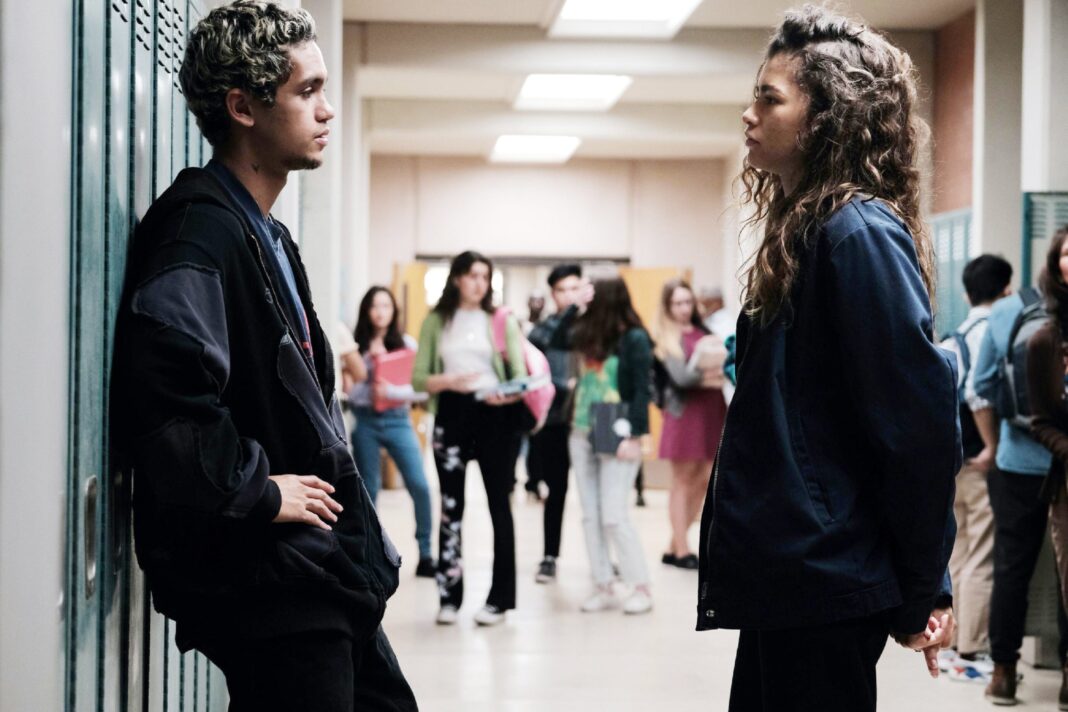BTN News: Generation Z is redefining how they consume media, demanding less explicit sexual content and more focus on friendship and identity. A 2023 University of California study highlights that 51% of Gen Z, born between 1995 and 2000, want less sex on screen and prefer narratives that prioritize platonic relationships. The findings are not only reshaping audience expectations but are also pushing the entertainment industry to reconsider its reliance on sexualized content. In a time when conversations about gender and identity are becoming more fluid, 39% of zoomers even express a desire to see more asexual characters in film and television.
A Generation Tired of the Same Old Sexualized Narratives
While sex on screen has often been considered a norm, Generation Z’s attitude challenges this assumption. Many young people are pushing back against the repetitive and often heteronormative portrayals of sex that dominate TV and film. Instead of traditional depictions of sexuality, they are calling for a more nuanced approach—one that explores friendships, emotional connections, and the eroticism of everyday life without the fixation on sexual encounters.
The term “puriteens,” coined by columnist Barbara Hellen in her The Guardian piece, has been used to describe this trend. However, it’s not a simple matter of prudishness. Instead, these young adults are questioning whether explicit sex scenes truly reflect freedom or enjoyment. Could it be that obsessive sexual content is just another form of repression, leaving little room for other types of desire and connection?
Why Gen Z Prefers Friendship and Emotional Bonds
At the heart of this shift is a desire for stories that resonate with how Generation Z views relationships and identity. The constant repetition of heterosexual, penetrative sex as the pinnacle of human connection no longer feels relevant to many zoomers. In its place, they seek narratives that highlight the beauty of friendship, intimacy without sex, and love that transcends the traditional norms. This doesn’t mean they are anti-sex, but rather that they are calling for broader representations of what it means to connect with others.
Breaking Free From Sexual Stereotypes
For decades, sexual content in movies and series has followed a familiar script: heteronormative, aggressive, and often devoid of genuine intimacy. This kind of portrayal, while catering to older generations, has alienated many young viewers who find it unrealistic and limiting. A closer look at recent films and TV shows reveals that sex scenes are often used as marketing tools rather than as meaningful parts of the narrative. By showing less of these tired tropes, the entertainment industry could make space for more diverse stories.
A New Approach to Sexuality and Identity
One of the key factors behind this cultural shift is the way Generation Z defines gender and sexuality. They are less tied to traditional gender roles and more open to exploring identity beyond the physical. The typical sex scenes in media, which are often limited to genital-focused, heteronormative expressions, feel out of touch. As a result, Gen Z is looking for content that better aligns with their experiences—stories where gender and sexuality are seen through an identity-focused lens rather than a purely physical one.
This generation’s rejection of stereotypical sexual portrayals goes hand in hand with their support for asexual representation. By calling for more asexual characters, zoomers are expanding the conversation about what it means to live a full and emotionally rich life without sexual attraction. They are challenging the narrative that sex is the most important aspect of human connection and embracing emotional intimacy as an equally, if not more, important factor.
The End of Obsessive Sexual Content?
What if Generation Z has simply realized that less is more when it comes to on-screen sex? The relentless focus on explicit scenes may have reached a point of diminishing returns, where viewers no longer find them interesting or relevant. Instead of fueling desire, they often reinforce outdated stereotypes about relationships, especially for those who don’t identify with the traditional heterosexual script.
This change in attitude isn’t just limited to sexual content—it’s part of a larger cultural shift. As more young people embrace diverse expressions of gender and sexuality, they are demanding that media reflect their evolving views. It’s no surprise that they’re calling for content that doesn’t rely on sexual tension as its primary source of drama or connection.
What the Entertainment Industry Can Learn From Gen Z
The entertainment industry is already paying attention. With millions of zoomers making their preferences known on social media, producers and directors are recognizing that the old formula may no longer work. To stay relevant, they will need to rethink how they depict relationships and rethink what constitutes a compelling narrative. In many ways, Generation Z is pushing for a more inclusive media landscape—one where platonic love, friendship, and even asexuality are given the same weight as romantic or sexual relationships.
The question now is whether Hollywood and other media creators will embrace this change or continue relying on outdated tropes. If the trends continue, we could soon see a wave of films and series that focus on the eroticism of life beyond the bedroom—where emotional connection, intellectual engagement, and shared experiences take center stage.
Conclusion: Generation Z’s Call for Authenticity in Media
As the 2023 study from the University of California reveals, Generation Z’s media preferences are pushing the entertainment industry to rethink how it portrays sex and relationships. Rather than seeing this as a rejection of sexuality, it’s more about embracing a wider range of human experiences. From their desire to see more asexual characters to their preference for platonic friendships on screen, zoomers are shaping a future where stories are more reflective of the diversity and complexity of human connections.
In an age where sex has often been commodified, Generation Z’s call for change could lead to a richer, more nuanced portrayal of desire and connection—one that resonates deeply with modern audiences.


